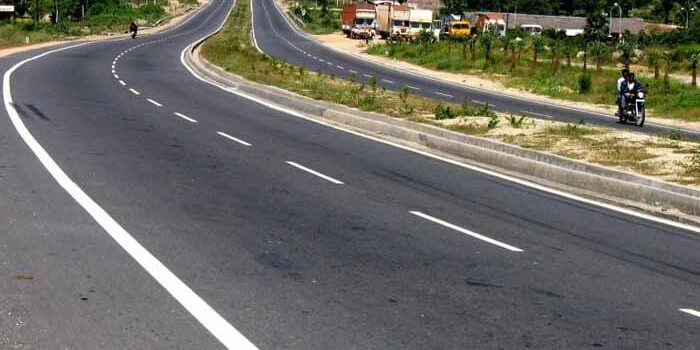AfDB Provides US$ 15.6bn for Abidjan-Lagos Highway Project, Nigeria

The African Development Bank (AfDB) stated recently that it had obtained the $15.6 billion needed to fund the 1,081 km Abidjan-Lagos highway project, which is expected to be completed in 2025.
The two ends of the large dual, 3-lane road will be at Bingerville in Abidjan and Mile 2 in Lagos, respectively. The highway is divided into three sections: 295 kilometers between Abidjan and Takoradi; 466 kilometers between Takoradi and Akanu (both in Ghana); and 320 kilometers between Noepe in Togo-Cotonou-Lagos.
The infrastructure would facilitate transport between Abidjan, with a population of 5 million people, Takoradi, with just under 1 million, Accra, with 2.5 million, Cotonou, with 2.6 million, and Lagos, with 15 million, which are among the most active seaport cities and most populated hubs in the West African region of the Gulf of Guinea.
According to World Bank statistics, the five states through which the route traverses have a combined GDP of $589 billion and a population of 284 million people.
Abidjan-Lagos Highway Project benefits to go beyond the Nigeria border
It is expected that the Abidjan-Lagos Highway will also help to open up West Africa’s landlocked countries, including Burkina Faso, Mali, and Niger. According to the AfDB, the Abidjan-Lagos coastline encompasses roughly 75 percent of West Africa’s commercial operations.
The transportation industry contributes 5% to 8% of the region’s gross domestic product and is critical for economic development and the creation of employment, especially for women and young people.
Noteworthy, the Abidjan-Lagos highway is one of 16 projects in the African Union’s Programme for Infrastructure Development in Africa (PIDA) that the AfDB is implementing. It is critical to ECOWAS Vision 2050, which calls for the region to become completely integrated and interconnected.
The Abidjan-Lagos highway project’s ultimate purpose is to expand income-generation options for individuals in the region whose livelihoods are strongly reliant on modes of transportation. According to the financiers, the completion will be a game-changer.
Connection with other regional roads
The Abidjan-Lagos Highway is expected to be connected to another highway, the 440-kilometer Enugu-Bamenda corridor, funded by the AfDB, which connects southeast Nigeria and South-West Cameroon once completed.
The Dakar-Abidjan-Lagos highway is a much broader project, and the corridor is only a small part of it.
Benin, Burkina Faso, Côte d’Ivoire, Gambia, Ghana, Guinea Bissau, Guinea, Liberia, Mali, Nigeria, Niger, Senegal, Sierra Leone, and Togo are among the 14 West African countries that will be connected by this cross-border coastline highway.


 President Akufo-Addo Inaugurates Dualisation of Anwiankwanta-Ahenema Kokoben Road to Ease Traffic and Boost Connectivity
President Akufo-Addo Inaugurates Dualisation of Anwiankwanta-Ahenema Kokoben Road to Ease Traffic and Boost Connectivity  Angola-Zambia Road Project to Boost Trade and Economy in Eastern Angola
Angola-Zambia Road Project to Boost Trade and Economy in Eastern Angola  Power China Group Utilizes Linnhoff TSD1500 for Key Rural Road Projects in Kenya
Power China Group Utilizes Linnhoff TSD1500 for Key Rural Road Projects in Kenya  ECOWAS HQ construction draws closer to completion
ECOWAS HQ construction draws closer to completion  TENDER FOR THE SUPPLY & DELIVERY OF TREE SEEDLINGS | GHANA
TENDER FOR THE SUPPLY & DELIVERY OF TREE SEEDLINGS | GHANA  Nigerian President: Fuel Subsidy Removal Saves $1.32B in 2 Months
Nigerian President: Fuel Subsidy Removal Saves $1.32B in 2 Months  TENDER FOR THE ESTABLISHMENT OF CODING & ROBOTIC HUBS IN SCHOOLS | SOUTH AFRICA
TENDER FOR THE ESTABLISHMENT OF CODING & ROBOTIC HUBS IN SCHOOLS | SOUTH AFRICA